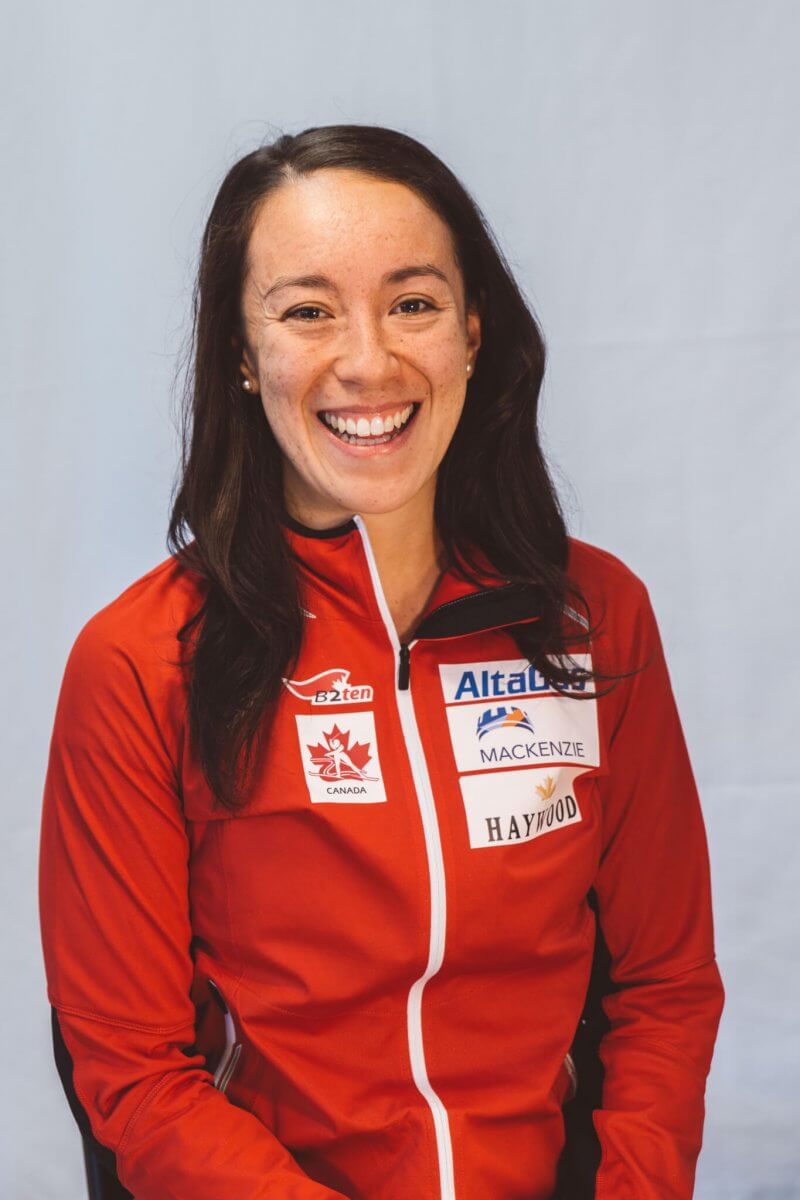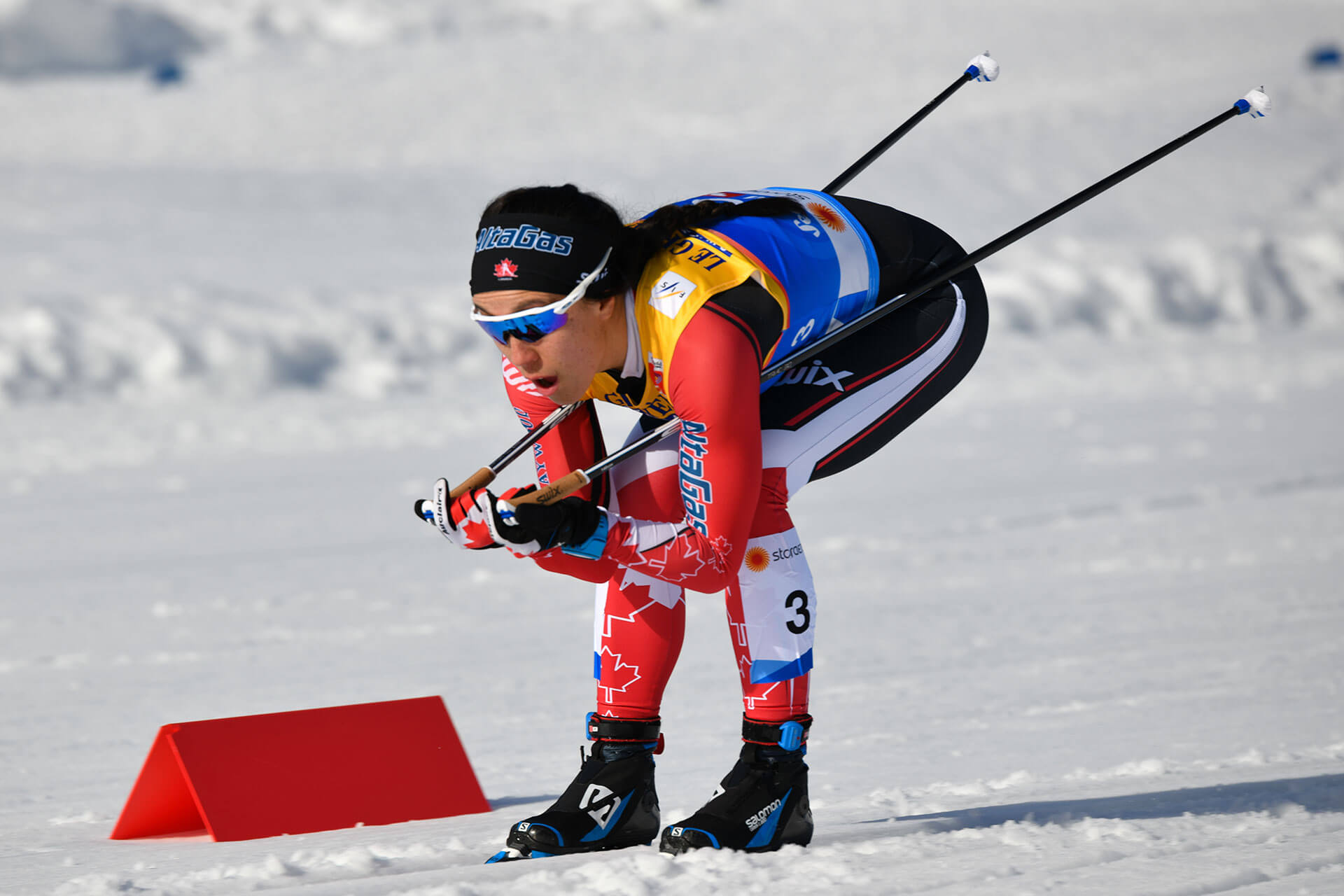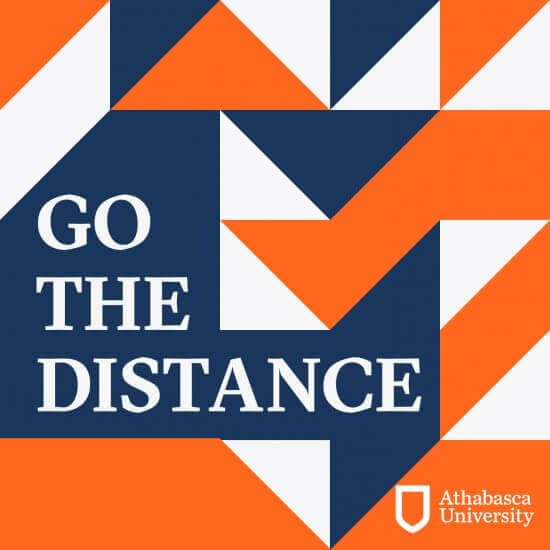After 13 years of training and studying, Emily Nishikawa earned a degree from Athabasca University. She shares her experience on the Go the Distance podcast.

At only 32 years old, two-time Olympic cross-country skier Emily Nishikawa (Bachelor of Arts - Psychology '20) has a full career behind her.
Nishikawa represented Canada on the sporting world's largest stage at the PyeongChang and Sochi Olympic Winter Games in 2018 and 2014, respectively.
For a lot of athletes, competition is everything. There's no time to think about what happens once it's over. But Nishikawa wanted to make sure she had a plan for what came next, which is how she came to Athabasca University (AU).
In episode three of AU's Go the Distance podcast, Nishikawa shares how she got into skiing, what it was like to compete at the Olympics, and how the flexibility of online learning at AU allowed her to pursue post-secondary education without sacrificing her training.
Go the Distance
How did you get started in competitive cross-country skiing?
Emily Nishikawa
My parents brought us out to ski on the weekend and we would head out on the trails. There's an amazing facility in Whitehorse, and just really great ski trails there. So it was a family activity-and they would bribe us with gummy bears and hot chocolate!
Later, I saw my brother go through the University of Connecticut Ski Team program. I thought that looked pretty cool and I wanted to do the same thing. And then after graduating high school, he was on the national ski team. And I thought that looked pretty cool, too, so I was going to aim for that.
After high school, you eventually made the Canadian national team and were living and training in Canmore. What's it like to train at that level?
It was definitely a full-time job. Throughout the summer, we're doing roller skiing, running, biking, strength training, and then if we can get on snow, that's a bonus. So either by going to New Zealand or going up onto a glacier.
I've spent entire winters in Europe racing on the World Cup circuit. We'd head over in November to Scandinavia. Say you arrive on a Monday, then you train Tuesday, Wednesday, Thursday, and race Friday, Saturday, Sunday. And then you travel to the next place on Monday and kind of repeat that. It's quite an exhausting circuit.
As I progressed through skiing through the national team, school gave me something else to focus on, other than just being a skier.
Emily Nishikawa (Bachelor of Arts – Psychology ’20)
Early into your professional skiing career, you enrolled in the Bachelor of Arts - Psychology major program at AU. How did studying impact your athletic career?
I would usually study in the afternoon, or evenings, after getting my morning workout training out of the way, eating lunch and taking a nap.
As I progressed through skiing through the national team, school gave me something else to focus on, other than just being a skier. Skiing was my primary focus, but being able to come home after a bad day of training and switch gears completely and open my textbooks and write an essay or something was actually really beneficial to me.
In 2014, after years of hard work, you joined Team Canada at the Olympics in Sochi. What was that like?
It almost felt surreal. It was something I had thought about and dreamed about for so long. But then when you actually get the phone call, like, OK, you made the team. It just felt amazing. And then it's also a big relief, because the Olympic trials were so stressful. Now, I can take a deep breath and just enjoy this next part.

My friends and family tease me that it was the world's longest undergrad degree. It took me 13 years to finish.
Emily Nishikawa (Bachelor of Arts – Psychology ’20)
After competing again at the Olympics in 2018, you retired from skiing but also earned your degree around the same time. How did that feel?
My friends and family tease me that it was the world's longest undergrad degree. It took me 13 years to finish, but it's a great thing to have an undergrad at the same time that I retired. I can just start the next step [of my journey] right away.
What's the transition like going from high-performance athlete to the next thing?
If you don't have those other avenues or outlets in your life and all you are is an athlete, your self-worth is dependent on being an athlete. And if athletics are not going well at a certain time, it can be pretty devastating. Having other outlets and knowing that there are other things we can be good at, as well as sport, really helped me be a more well-rounded athlete. It made this transition into retirement from athlete life that much easier.
Last fall, you started an after-degree in education. What's next for you?
I took some educational psychology courses through my AU degree, which I found very interesting. And then as I progressed through my ski career, I was an ambassador with the Classroom Champions program, so I was a mentor to elementary school classrooms across Canada. I got to meet some amazing teachers through this program as well that have really inspired me to go into education myself and become a teacher.
I can picture myself working with younger children in elementary school. I'm also really, really loving outdoor education. I've been doing some work with the Forest Play program in Canmore this summer.
This interview has been edited for length and clarity.
Listen to more episodes
Listen to more episodes of Go the Distance and discover how AU helped other learners and alumni achieve their education and career goals. Download from Apple Podcasts, Google Podcasts, Spotify, and more.
